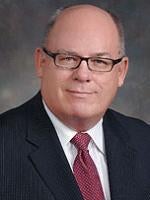In what may signal another attempt by the NLRB to expand its jurisdiction, the Board yesterday invited briefs from the public on two issues dealing with its jurisdiction over religiously affiliated institutions and whether certain faculty members at a university are employees covered by the National Labor Relations Act. [A copy of the Board’s invitation is available here.] The first issue may have ominous overtones for religiously affiliated colleges and universities which are already engaged in litigation with the Obama Administration over the contraceptive mandate in the Affordable Care Act.
The fundamental jurisdictional question arises in the pending case of Pacific Lutheran University (19-RC-102521) where SEIU Local 925 is seeking to represent a proposed bargaining unit of all non-tenure-eligible contingent faculty. The university has defended among other reasons on the ground that it is a religiously operated facility not subject to the Board’s jurisdiction under NLRB v. Catholic Bishop of Chicago, 440 U.S. 490 (1979) . [A copy of the University’s brief is available here.] However, the Regional Director effectively decided that the University was not religious enough and therefore subject to the Board’s jurisdiction, in large part, according to the brief filed by the Union in the matter, because the University’s mission statement had no religious references, and neither students nor faculty are required to be Lutheran.
The case now before the full Board calls into issue the application of the Supreme Court’s decision in NLRB v. Catholic Bishop of Chicago, where the Supreme Court determined that religiously affiliated schools were exempt from the NLRB’s jurisdiction. The Supreme Court concluded that both the Free Exercise Clause and the Establishment Clause of the First Amendment foreclosed the Board’s jurisdiction over church-operated schools.
Thus, the threshold question at issue in Pacific Lutheran is what standard is the NLRB to apply in cases involving religiously affiliated schools – the “substantial religious character test” it has developed or the three-part “bright line test” of the D.C. Circuit Court of Appeals.
In a series of decisions following Catholic Bishop, the Board developed its “substantial religious character test.” See e.g., Livingstone College, 286 N.L.R.B. 1308, 1309-10 (1987); Jewish Day School of Greater Washington, Inc., 283 N.L.R.B. 757, 760-61 (1987); Trustee of St. Joseph’s College, 282 N.L.R.B. 65, 68 & n.10 (1986). This “substantial religious character test”, which was applied by the Regional Director in the Pacific Lutheran case, permits Board inquiry into “all aspects of a religious school’s organization and function that [it deemed] relevant.” St. Joseph’s College, 282 N.L.R.B. at 68 n.10.
However, it’s plain to see that the Board’s application of the “substantial religious character” test allows the Board to determine whether a school or University is “religious enough” for its purposes and in doing so contradicts the constitutional avoidance grounds for the decision in Catholic Bishop. The D.C. Circuit Court of Appeals has recognized this dilemma and has struck down prior Board decisions involving the “substantial religious character” test.
In University of Great Falls v. N.L.R.B, 278 F.3d. 1335 (D.C. Cir. 2002), andCarroll College, Inc. v. NLRB, 558 F.3d 568 (D.C. Cir. 2009), the D.C. Circuit found the Board’s test involved “the sort of intrusive inquiry that Catholic Bishop sought to avoid,” with “the NLRB trolling through the beliefs of [schools], making determinations about [their] religious missions, and that mission’s centrality to the ‘primary purpose’ of the [school].” Id. at 1341-42.
In its place, the court created a three-part inquiry, finding exemption from Board jurisdiction if an institution (1) “'holds itself out to the students, faculty and the community' as providing a religious educational environment”; (2) “is organized as a 'nonprofit,'” and (3) “is affiliated with, or owned, operated, or controlled, directly or indirectly, by a recognized religious organization, or with an entity, membership of which is determined, at least in part, with reference to religion…” Id. at 1343. The “bright-line rule” adopted in Great Falls was later upheld and followed by the D.C. Circuit in Carroll College, Inc. v. NLRB, 558 F.3d 568 (D.C. Cir. 2009).
The application and viability of the “substantial religious character test” is also at issue in three other cases the Board has accepted for review: Saint Xavier University, Case No. 13-RC-22025; Manhattan College, Case No. 2-RC-23543; and Duquesne University of the Holy Spirit, Case No. 6-RC-08933.
Briefs on the various questions raised in the Board’s order are to be filed with the Board on or before March 28, 2014 and are not to exceed 50 pages.




 />i
/>i


